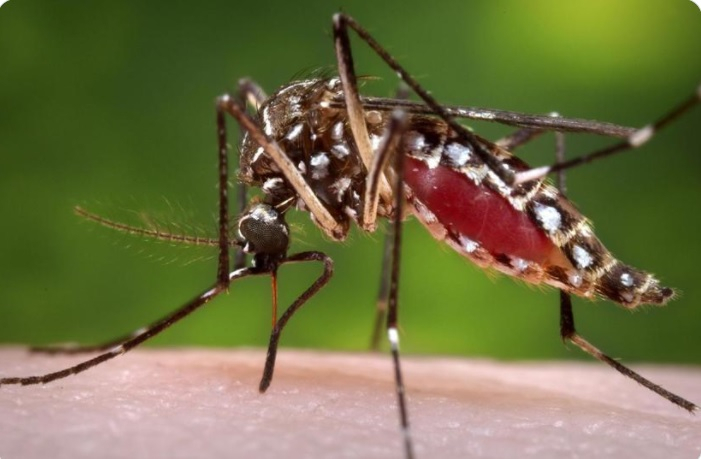Russia warned on Monday of a possible increase in West Nile Virus (WNV) infections, which are primarily transmitted from birds to humans by mosquitoes and can result in a fatal neurological disease.
WNV is usually mild, but can be fatal in rare cases. Most people infected with WNV don't even know they're sick, and it's rarely spread from human to human.
"In light of favourable climatic conditions this year - an abundance of precipitation... a warm and long autumn, a high number of (virus) carriers could be observed in the autumn," Rospotrebnadzor, Russia's consumer health watchdog, said.
Over 80 percent of West Nile fever cases in Russia are registered in the country's southwest.
What is the West Nile Virus (WNV)?
As per the World Health Organisation, the WNV is a member of the flavivirus genus and belongs to the Japanese encephalitis antigenic complex of the family Flaviviridae.
It is an infectious disease spread by infected mosquitoes. According to the Centers for Disease Control and Prevention (CDC), it is the leading cause of mosquito-borne disease in the continental United States.
It is most commonly transmitted to humans through the bite of an infected mosquito. Cases of WNV occur during the mosquito season, which begins in the summer and lasts until the fall.
What are the Symptoms of WNV?
WNV infection is either asymptomatic (no symptoms) in approximately 80% of infected people, or it can cause West Nile fever or severe West Nile disease. The symptoms include a fever, headache, body aches, skin rash, and swollen lymph glands. They can last a few days to several weeks, and usually go away on their own.

Severe illness can occur in people of any age; however, people over 60 years of age are at greater risk for severe illness if they are infected (1 in 50 people). People with certain medical conditions, such as cancer, diabetes, hypertension, kidney disease, and people who have received organ transplants, are also at greater risk.
Recovery from severe illness might take several weeks or months. Some effects to the central nervous system might be permanent.
About 1 out of 10 people who develop severe illness affecting the central nervous system die, according to the CDC.
How to Treat WNV?
There is currently no human vaccine available. Over-the-counter pain relievers can be used to reduce fever and relieve some symptoms
However, treatment for patients with the neuro-invasive West Nile virus frequently entails hospitalisation, intravenous fluids, respiratory support, and secondary infection prevention.
What About the WNV in the US?
Recently, West Nile mosquitoes were found in Floyd County located in the US state of Georgia and Clark County located in the US state of Nevada, reported WHAS-TV station.
Both counties are advising residents to avoid getting mosquito bites by using insect repellents when outside. In Arizona, Arkansas, Illinois, and Iowa, a few humans have also been infected. California reported its first death of the year in July.
Is WNV An Alarming Side Effect of US Drought?
The West Nile virus was once associated with higher humidity and moisture, conditions that help mosquitoes thrive. But a growing body of research has found that drought conditions – such as those being felt across the American west – could amplify its effects, according to The Guardian.
A medical entomologist told The Guardian: "During drought, the water levels in pipes and pits and ponds drop, and the water is more likely to get stagnant," he said. "Fish die along with other animals that live in these systems, and the mosquitoes have free rein."









